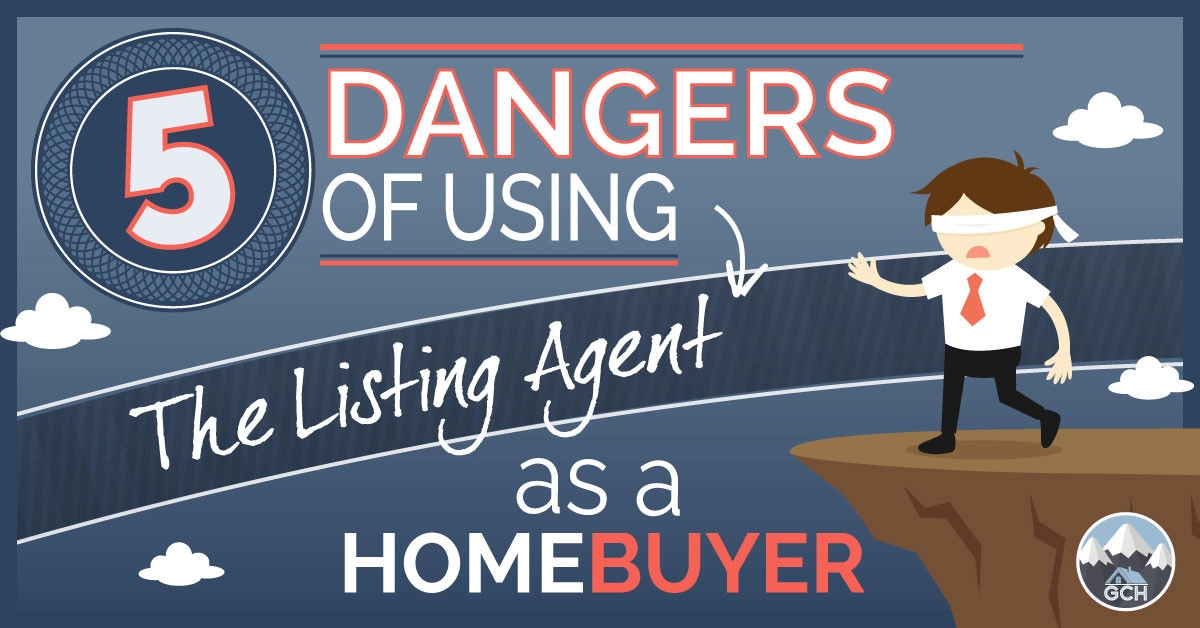Dual Agency in Real Estate Explained

Buying a home is a big step. Your choice of home will shape your day-to-day life and create new memories. The journey can get overwhelming, especially if it’s your first time. Having the right Realtor in your corner makes all the difference. They help smooth things out and protect your best interests right from your first showing up to closing day.
In every real estate deal, there are usually two kinds of Realtors:
The Listing Agent helps the seller and looks out for their needs.
The Buyer’s Agent works for you if you’re buying and puts your needs first.
Each agent’s job is to support only their own client. That matters a lot.
It’s common for buyers to ask the agent who listed the home to show it to them. But that choice can lead to problems you might not see coming. Some buyers even end up signing a contract with the seller’s agent. This is called dual agency. It means one Realtor tries to represent both sides at once.
Many people think skipping a Buyer’s Agent will help them get a better price or special treatment. Some hope they’ll pick up secrets from the listing agent. But these ideas just do not hold up. In reality, you can lose out on fair help and protection in the deal.
Let’s look at five big risks that come with using the listing agent instead of your own trusted Realtor.

 Conflict of Interest
Conflict of Interest

Is it really possible for one real estate agent to give fair advice to both buyer and seller in the same deal?
It’s common for sellers to build a close working relationship with their listing agent while preparing their home for sale. This means weeks of planning and trust built up before a buyer ever sees the house.
Most buyers come along later and have only just met the listing agent. When they decide they want the home, the listing agent may offer to help both sides. This is called dual agency or transaction brokerage. In these cases, the agent can end up earning money from both sides. It can be tempting for some agents to focus more on the seller, since that’s who they know best and who hired them first.
From the inside, I’ve seen that it is tough for one agent to give truly equal service to both people at once. Even when they try their best, human nature makes it hard to separate loyalties. In my experience, the sellers always get more attention, simply because they started this whole process with the agent.
If you are a buyer, it’s smart to have your own agent looking out just for you. That way, your advice is clear and there’s no confusion about where your agent’s loyalties stand. This helps keep the process fair for everyone and gives you better support during negotiations and inspections.
Having your own real estate expert matters, especially if you want advice that puts your needs first.
 The Power of Money
The Power of Money

Money shapes how real estate deals work. In Colorado, it is common for sellers to pay the real estate commissions. That means the listing agent is paid by the seller, even if you as the buyer use that same agent for help. This setup is called dual agency.
Here’s a simple example. You know a listing agent from before, and you ask them to help you buy a home they have listed. You trust them and sign an agreement. But during the process, the seller might offer the agent extra money if you agree to pay more for the house. Now the agent faces a choice: help the seller make more, or keep your best interests first.
Most buyers do not realize how strong the seller’s influence is, just because they control the paycheck. When one agent helps both sides, it is easy for the deal to lean toward the person paying the commission. If you are thinking about using the seller’s agent, remember that this situation can put buyers at a big disadvantage. Always ask who the agent is truly working for before you sign anything.
Home buyers should always think about where the agent’s loyalty lies. This way you protect yourself and make the smartest move with your money.
 The Spin On Information
The Spin On Information

Imagine you are buying a house in Colorado. You find a place you love and your offer gets accepted. Next up is the home inspection, which is a key step for any homebuyer. The inspector checks the whole house and gives you a report. This report can have a bunch of issues listed, both big and small. Most reports will not be perfect, and it is normal to see several things that need fixing.
After you get the report, you bring your concerns to your agent. If your agent also works with the seller or represents both sides, they might talk down the problems. They may say things like, "All houses have some issues" or, "That's just normal wear and tear." This can be confusing, especially if you do not feel comfortable with their answers. It is tough to know who to trust, especially when you are not a real estate expert yourself.
If this happens, remember you always have options. You can ask another trusted real estate agent for a second opinion or call the inspector to explain any issues. Always choose your own inspector and never feel forced to use a name the seller provides. Reading every page of the inspection report helps you ask clear questions. Trust your gut. If something sounds off, speak up. Good agents respect your concerns and help you understand what is serious and what is not. These steps can help you make smart choices during your Colorado Springs home purchase.
 Lingering Skepticism
Lingering Skepticism

It is normal to start feeling unsure if you keep running into new surprises during a home purchase. Even with a helpful real estate agent, doubts can creep in, especially if things seem complicated or you get unexpected documents.
Imagine you trust your agent and both sides agree on repairs. Right when you feel at ease, the HOA documents arrive. You learn about rules, like no overnight parking in driveways. This might not work if guests visit you often. When you ask the agent if that will cause trouble, they tell you people park anyway, but you are not sure if you can rely on this advice.
Feeling unsure during a big move is stressful. When you do not have your own buyer’s agent, it is harder to know whose side your agent is really on. Second-guessing can start to pile up after one small issue, making you wonder about every step so far.
If you want clear advice and someone focused on your needs, a buyer’s agent is a smart choice. In Colorado, the seller usually pays both agents, so it does not cost you extra. Your own agent will point out red flags, explain documents, and answer tough questions with just your interests in mind.
Buyers feel relieved having someone local to look out for their best deal and match them with the right neighborhood rules. If you want to move forward with confidence, think about having a dedicated buyer’s agent on your team.
 The Legality of Dual Agency
The Legality of Dual Agency

Many homebuyers wonder if it is safe to let one real estate agent represent both the buyer and the seller. This practice is called dual agency. Dual agency is legal in Colorado, but there are important limits set by the law. Agents often switch to something called a “transaction broker” so they are not acting on the buyer or seller’s side. In this role, the agent must stay neutral and cannot push for one side over the other.
A Colorado transaction broker acts more like a helper than an advisor. They can explain paperwork and keep things moving, but they cannot give you advice about what price to offer or other private decisions. If you want help making big choices, having your own “buyer’s agent” is usually safer. A buyer’s agent looks out for you alone and puts your needs first at each step.
If a deal with a transaction broker ends up in court, judges may see you as having less protection. You have stronger legal support when an agent is fully committed to you as a buyer’s agent. Real estate agents in Colorado, including myself, see that trust and good advice matter most when buying a home. Protect your interests by having your own dedicated agent rather than sharing one with the seller.
Just because dual agency is allowed under Colorado law does not make it the best choice for most buyers. You may find it safer and easier to have someone in your corner who is fully on your team.
Final Thoughts
Buying a home can be exciting but sometimes overwhelming. Small details in real estate deals add up fast. One important thing to watch for is dual agency. That is when one real estate agent represents both the buyer and the seller. This can seem easy at first but it often creates big problems. An agent cannot fully support both sides at once. If you use the listing agent for your purchase, you may not get advice that puts your needs first.
If you are thinking about moving here, take time to learn about how agents work. Ask who they represent and what that means for you. Always read any agreement before signing. If something feels off, trust your gut and ask more questions. Working with your own agent who is on your side will give you better support and peace of mind.

.png)








